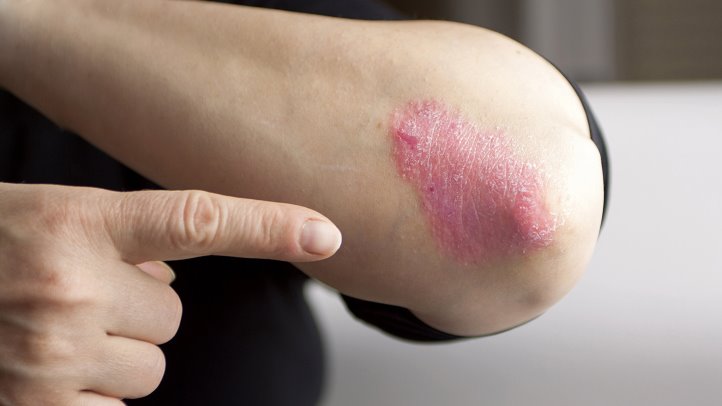Psoriasis comes from the Greek word “psora” which means “to ïtch”. While that may be an understatement, it has been a part of human history even before the Egyptian mummies were alive. Until the emergence of modern medical science, psoriasis was treated with dubious preparations which were, more often than not, highly toxic or bacteria-infested.
 However, these treatments have been now replaced by effective therapies that produce positive and long-lasting results in most people.
However, these treatments have been now replaced by effective therapies that produce positive and long-lasting results in most people.
About Plaque Psoriasis
Psoriasis is one of the most common diseases with more than 100 million patients worldwide. It is also one of the most prevalent autoimmune diseases in the world. Autoimmune diseases are triggered when the immune system starts attacking healthy body cells by mistake.
Plaque Psoriasis is the most common form of psoriasis with over 80% prevalence rate. While the cause of psoriasis is still being investigated, it is believed that certain conditions can trigger it, for example, obesity, stress, and smoking. In plaque psoriasis, the skin cells build up rapidly, especially on joints and form scaly, itchy and dry scale-like flakes of flesh.
Symptoms of Plaque Psoriasis
While the general symptoms are the same, specific and detailed symptoms are based on the severity of plaque psoriasis. The condition can be mild or chronic and highly exacerbated, as in the case of psoriasis Vulgaris. The patient develops raised patches of silver-white scales on inflamed skin around the body.
It often develops around knees, back, elbows and scalp. The symptoms can also be seen on the nails in the form of pitting, discoloration, and even nail detachment.
Initially, the changes are seen on small patches of skin as small reddish bumps. Over time, these bumps begin to coalesce or merge to form bigger plaques. They are roughly oval-shaped with color ranging from pink to red. On top of these, plaque is usually covered by a layer of silver-white scale.
At times, these plaques may crack, or the scale may be lifted due to some reason, causing intense pain, bleeding, and fissures. This may result in thickening of the skin. Thus, causing the patient a lot of itching and general discomfort.
Infections and injuries have been found to exacerbate the symptoms, just like some NSAIDs (Non-Steroidal Anti-Inflammatory Drugs) and beta-blocker drugs.
Despite how it appears, psoriasis is not contagious. It is important to bust such myths to ensure that patients do not suffer from social stigma along with the psychological effects of psoriasis.
Causes of Plaque Psoriasis
Not much is known about the causes of plaque psoriasis other than the fact that it is an autoimmune disease. It is widely believed that it is a hereditary disease as psoriasis is usually passed down in families. Some other causes like infections and exposure to toxins, these explanations are simply a hypothesis.
Once psoriasis is triggered, the production of skin cells is significantly increased. You can estimate the full measure of this increase by the fact that normal skin cells are replaced once a month or so, but psoriasis leads to a shedding every 3-5 days.
Thus, the new cells are produced faster than the old cells are lost. As a response to inflammation, the blood vessels underneath enlarge which causes more redness and swelling?
Diagnosis of Plaque psoriasis
Psoriasis is commonly diagnosed by a physical exam. The appearance is enough to produce a sufficient diagnosis. There is usually no need for blood tests and other exams. However, several other diseases produce similar-looking symptoms like Cutaneous T-cell lymphoma, streptococcal infection, Ringworm, etc. To rule out these conditions, the doctor might order a thorough physical examination and/or biopsy.
Treatment of Plaque Psoriasis
Psoriasis can affect both the physical and psychological well being of a person. At present, there is no cure but there are several therapies that have worked for a majority of patients. Most common of these are mentioned below:
- Topical corticosteroids
- Phototherapy
- Non-biologic drugs
- Biologic drugs
- Retinoids
Conclusion!
While the ancient treatments that included arsenic and animal dung have (obviously) been done away with, the cause of psoriasis remains unknown. The best we can do is treat the symptoms when they come and try to delay remission. With an increased understanding of human biology and autoimmunity, it has become possible to treat psoriasis effectively.